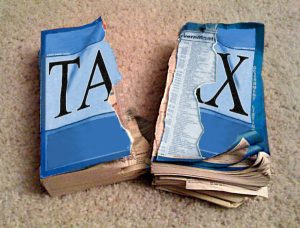Estate planning is important… if you don’t plan for what happens to your estate upon your death, the government and/or a judge will make those decisions for you. When you are ready to plan for end of life, here are some tips:
Seek professional help
It might seem outside of your comfort zone, but seeking the help of a mental health professional for guidance could be helpful to you. It could also help your family as well.
Get financial documents in a single place

It’s important to begin getting your financial documents together. We recommend you gather them all in a single place and put them together in an easy to get to a location such as a three-ring binder.
This will save your relatives the struggle of trying to find all the information they need.
Start by getting your will. If you don’t have one, make a list of your assets: financial accounts, real estate, and any retirement accounts.
A will is the best way to ensure your assets get distributed to the person you want them to. Without specifying your wishes, there can be family disputes and even court cases. Property distribution is best spelled out in a will
Choose your beneficiary

One of your first tasks should be designating your beneficiaries on your financial accounts.
It may be basic but it is more powerful than a will. It can save time and money for your assets going through probate.
Your brokerage will let you attach transfer-on-death instructions to your non-retirement account. Transfer-on-death deeds can also be used in real estate in Illinois.
After you have designated beneficiaries, detail your liabilities, for example, mortgage, loans, credit card debt, and insurance policies for health, home, and vehicles.
Create a contact list of people your family can reach out to for help. This should include your lawyer, accountant, insurance agent and financial advisor. Write down the name and contact information of everyone who needs to be involved.
Even if you’ve already done estate planning , it is a good idea to consult with an attorney experienced in estate planning. In the time since you made your estate plan, laws may have changed or even your financial goals or beneficiaries.
Decrease the tax burden

There are ways that you can decrease the tax burden on your beneficiaries.
One way to leave money to heirs is through a Roth individual retirement account.
Another is a brokerage account because any capital gains tax will be wiped out due to the step-up in basis on the original price paid.
Here is how this works: If the owner sells a stock that has gained in value, they would have to pay capital gains based on that higher price. If the owner leaves that stock to an heir, the new owner receives the stock at the new price. They will only have to pay taxes on any gains in price after that point, not the original price.
If some asset has dipped significantly in value, though, you might consider selling the stock, mutual fund or ETF. As the original owner, you can deduct the losses by selling and deducting the loss. Your heirs are not able to take this step-down since they’d inherit the stock at a new, lower basis.
If you are older than 70½, take any required minimum distribution from your retirement accounts. Heirs may not know to do this, and there is a significant penalty for not taking it.
Another way to minimize taxes for your inheritors is through charitable donations. While your heirs would have to pay tax on the money in a retirement account, a charity would not.
Paying off a mortgage

Many people consider paying off a home mortgage, but because individual circumstances vary greatly, this is not always the best course.
Consider the amount of funds available, the current tax bracket and the size of the mortgage balance. It would be a good idea to have a financial planner run several scenarios to see how you can minimize the tax hit from withdrawing a large sum from a traditional IRA or 401(k) plan – or if you should leave it as a loan to be transferred to your heirs.
Have a record of password for your heirs
Collect all of your passwords in your binder with your financial records. Include a copy of the previous year’s tax return. When a final tax return is prepared, there might be some carryover items, such as long-term alternative minimum tax or long-term gains buildup.
List all service agreements, such as landscaping, utilities, cleaning and insurance, and auto payments. Arrange for their continuation or cancellation.
Keep track of your pension and Social Security benefits, since there could be survivor benefits that flow from those.
Other areas to consider in your binder: arrangements for your pets and talking to the financial aid office if you have a child in college. You’ll want to inform them of your change in financial status.
Contact an Experienced Estate Planning Lawyer Today!
Advertising Material: To the extent that the information on this Facebook profile page is interpreted as attorney advertising in accordance with the Illinois Rules of Professional Conduct or within the meaning of state bar rules from all other localities, this statement is made pursuant to those rules.
Specialties: Specialization claims are prohibited by Illinois Supreme Court Rules, and we do not claim to be specialists. The content of this e-mail is organized and presented for the sole purpose of general information. None of the included content should be construed as legal advice. Viewing this e-mail or e-mailing the account holder does not create an attorney-client relationship. NOTICE: This page may be considered advertising material.

